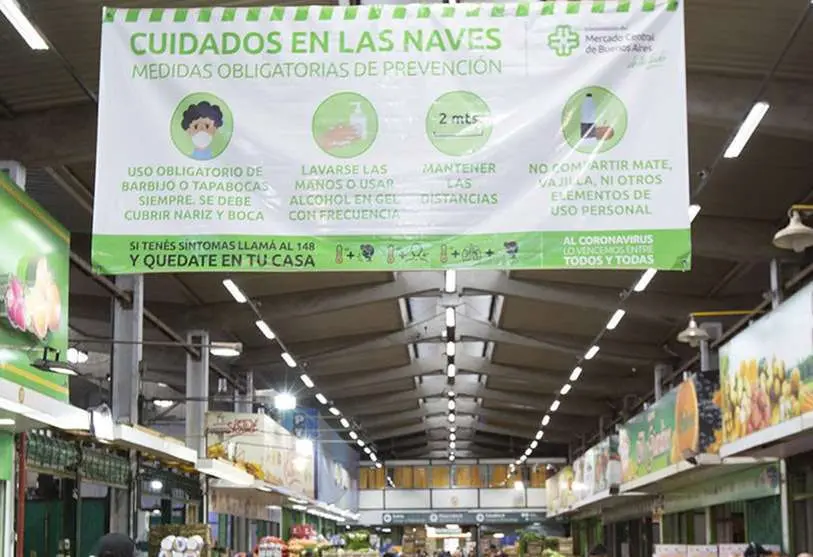For this Christmas, PAHO recommends avoiding crowds such as processions and markets

The Pan American Health Organization on Wednesday recommended that countries experiencing widespread transmission of COVID-19 should seriously consider postponing or reducing mass gatherings, such as religious processions, Christmas markets and church services.
"This is not the time to be hosting any mass meetings," said Dr Jarbas Barbosa, Deputy Director of the Organisation, during his weekly meeting with the media where the situation of COVID-19 in the Americas is analysed.
"Each country, city and community should base decisions about holding public events on the latest available data - especially data that shows where the virus is spreading and whether health systems have sufficient capacity to keep up with cases.
He added that "regardless of location, religious services should be held differently this year. They should be held outdoors when possible or limited in size when not," he said.
With regard to the people who will be travelling during these celebrations he said that COVID-19 testing is an important tool to track and combat the spread of the virus, but that we must be careful that the testing does not give us a false sense of security.
"It can take a few days before a diagnostic test detects a COVID-19 infection, so if a test is done too early, a person can test negative while still infected and spreading the virus to others," he explained.
Given this reality, the organization does not recommend relying on laboratory tests for people who travel.
The World Health Organisation sees no difference between the announced COVID-19 vaccines that at the end of the third phase of clinical trials report varying degrees of effectiveness above 90%.
"There is no difference. A vaccine with more than 90% effectiveness is a good vaccine," said Dr. Marcos Espinal, director of the Department of Communicable Diseases.
However, he stressed that not only the effectiveness has to be taken into account but other elements such as the cold chain, since some of them, such as Pfizer Pharmaceuticals, have to be stored at a very low temperature and not all countries are for this; the prices of all the advertised vaccines; or the methods (genetic material, DNA or others).
"Hence, the important thing is that we help ourselves with established mechanisms such as the Pan American Health Organisation's Revolving Fund, the Covax Mechanism, because they will advise us on the best options, but not think that the only characteristic (to be taken into account) is the effectiveness of the vaccine," he said.
Barbosa stressed that the first round of vaccination must be carried out by health workers, as they are "the frontline personnel", along with firefighters and teachers, a group that the Organization believes represents a total of 3% of the population of each country.
The next group, representing 17% of the population in each nation, includes people aged 65 years and over, as they are at high risk of having a serious case of COVID-19.
This is followed by the next group of 20% in each country who are aged between 30 and 40 and who suffer from underlying conditions such as diabetes, hypertension, cancer or chronic disease patients.
Dr Sylvain Aldighieri, the organization's incident manager, said that in theory, the percentage of people who need to be vaccinated to achieve mass immunization against COVID-19 is between 60 and 70 percent of the population, but that the number of people who are already immune is unknown.










